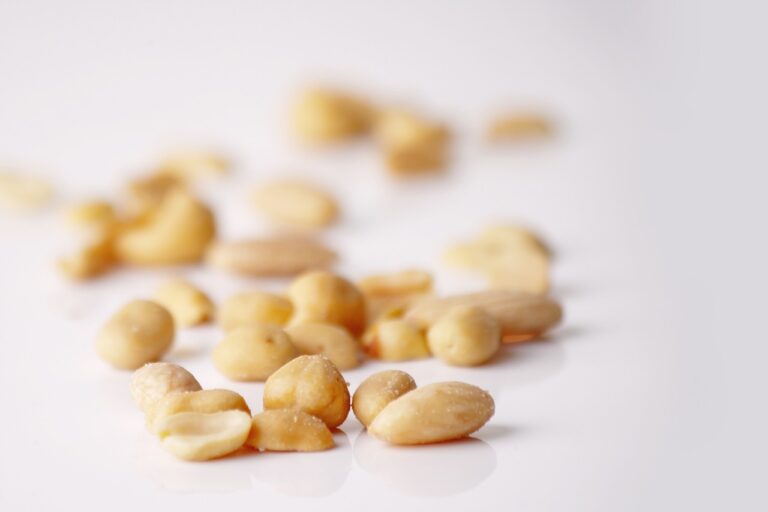Investigating the Health Effects of Food Contaminants in Vegetables: Allpannel, Laserbook247 com, 247betbook
allpannel, laserbook247 com, 247betbook: Investigating the Health Effects of Food Contaminants in Vegetables
Have you ever stopped to think about what might be lurking in your veggies? While vegetables are an essential part of a healthy diet, they can also be a source of food contaminants that pose potential health risks. From pesticides to heavy metals, there are several factors to consider when it comes to the safety of the produce we consume.
In this blog post, we will delve into the various types of contaminants that can be found in vegetables, their potential health effects, and how you can minimize your exposure to these harmful substances.
Understanding Food Contaminants in Vegetables
Food contaminants are substances that are unintentionally added to food during production, processing, packaging, or storage. In the case of vegetables, contaminants can come from various sources, including:
1. Pesticides: Pesticides are chemicals used to kill pests that attack crops. While they are effective in protecting plants from insects and diseases, they can also pose health risks to humans when consumed in high amounts.
2. Heavy Metals: Heavy metals like lead, cadmium, and mercury can find their way into vegetables through contaminated soil, water, or air. These metals can accumulate in the body over time and cause serious health issues.
3. Mycotoxins: Mycotoxins are toxic substances produced by molds that grow on crops like corn, peanuts, and grains. When consumed in large quantities, mycotoxins can lead to various health problems.
4. Microbial Contaminants: Bacteria, viruses, and parasites can contaminate vegetables during cultivation, harvesting, or processing. Consuming contaminated produce can result in foodborne illnesses.
Potential Health Effects of Food Contaminants in Vegetables
The health effects of food contaminants in vegetables can vary depending on the type of contaminant and the level of exposure. Some common health risks associated with consuming contaminated produce include:
1. Acute Toxicity: Exposure to high levels of pesticides or heavy metals can lead to symptoms like nausea, vomiting, and dizziness. In severe cases, acute toxicity can be life-threatening.
2. Chronic Health Conditions: Long-term exposure to low levels of contaminants like pesticides or heavy metals can contribute to the development of chronic conditions such as cancer, cardiovascular disease, and neurological disorders.
3. Allergies: Some food contaminants, such as certain pesticides or molds, can trigger allergic reactions in sensitive individuals. Symptoms may include hives, swelling, or difficulty breathing.
4. Reduced Nutritional Value: In some cases, food contaminants can affect the nutritional quality of vegetables, reducing their vitamin and mineral content. This can have long-term implications for overall health and well-being.
Minimizing Your Exposure to Food Contaminants in Vegetables
While the presence of food contaminants in vegetables is a concerning issue, there are steps you can take to minimize your exposure and protect your health:
1. Buy Organic: Organic vegetables are grown without synthetic pesticides or fertilizers, reducing the risk of contamination. Look for the USDA Organic label when shopping for produce.
2. Wash Thoroughly: Washing vegetables under running water can help remove surface contaminants like pesticides and bacteria. Use a vegetable brush to scrub firm produce like potatoes or carrots.
3. Peel and Trim: Peeling or trimming the outer layers of vegetables can help reduce exposure to contaminants that may be present on the surface. Just be mindful of nutrients lost in the process.
4. Diversify Your Diet: Eating a variety of vegetables can help reduce your overall exposure to any single type of contaminant. Rotate your produce choices to minimize the risk of cumulative exposure.
5. Grow Your Own: Consider growing your own vegetables in a garden or container to have more control over the cultivation process. This way, you can ensure your produce is free from harmful contaminants.
6. Stay Informed: Stay up to date on food safety guidelines and advisories from reputable sources like the FDA or CDC. Educate yourself on common contaminants and how to avoid them.
Conclusion
While vegetables are a vital part of a balanced diet, it’s essential to be mindful of the potential health risks associated with food contaminants. By understanding the types of contaminants that can be found in produce, their health effects, and how to minimize exposure, you can make informed choices to protect yourself and your family.
Remember, knowledge is power when it comes to food safety. Stay informed, take proactive steps to reduce your exposure to contaminants, and enjoy your veggies with peace of mind.
FAQs
Q: Are all pesticides harmful to your health?
A: While pesticides are designed to kill pests, not all pesticides are harmful to human health when used according to regulations. However, it’s best to opt for organic produce whenever possible to minimize exposure to synthetic pesticides.
Q: Should I be concerned about heavy metals in vegetables?
A: Heavy metals like lead and cadmium can pose health risks when consumed in high amounts over time. To reduce your exposure, choose vegetables grown in clean soil and wash produce thoroughly before eating.
Q: Can cooking vegetables reduce the risk of contamination?
A: Cooking vegetables can help destroy harmful bacteria and parasites, reducing the risk of foodborne illnesses. However, cooking may not eliminate all contaminants like pesticides or heavy metals.
Q: How can I know if my vegetables are contaminated?
A: While you may not be able to detect contaminants with the naked eye, staying informed about common sources of contamination and opting for organic, locally-grown produce can help reduce the risk of exposure.
Q: What should I do if I suspect my vegetables are contaminated?
A: If you suspect your vegetables are contaminated or if you experience symptoms of food poisoning after consuming produce, seek medical attention immediately. Reporting your concerns to the appropriate authorities can help prevent future instances of contamination.







